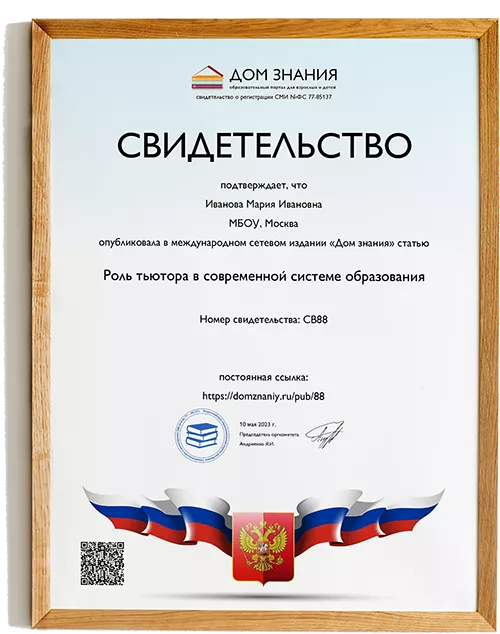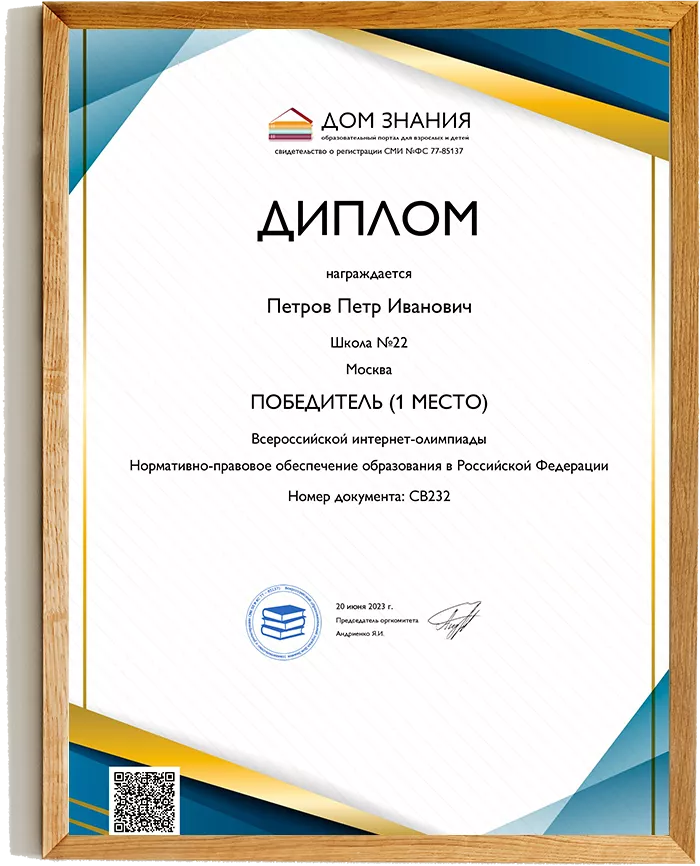Класс: 8a
Дата: 08.02.2024
Тема раздела: “Culture Exchanges”.
Тема урока: The World is your oyster. (Необычные путешествия. Все в твоих руках. Мир в твоих руках.)
Тип урока: урок открытия новых знаний.
Цель урока: создать условия для коммуникативной компетенции по теме “Необычные путешествия”.
Задачи урока
Обучающие:
Освоить во всех видах речевой деятельности (аудирование, чтение, письмо, говорение) новые лексические единицы по теме
“The
World
is
your
oyster
”
.
Развивающие:
Развивать навыки аудирования, поискового и изучающего чтения, говорения.
Развивать навыки работы с информацией (поиск, обработка,
представление).
Развивать умения, составляющие лингвистическую компетенцию
:
использование синонимов, развитие языковой догадки.
Развивать учебно- организационные умения и навыки ( взаимоконтроль, парная работа, работа в группах).
Развивать элементы
математической грамотности,
читательской грамотности, естественно- научной грамотности (география), креативного мышления.
Воспитательные:
Мотивировать к изучению иностранного языка.
Воспитывать толерантность и уважение к разным культурам.
Панируемые результаты
Предметные:
Освоение и обработка новых лексических единиц по теме
“The
World
is
your
oyster
”
.
Личностные:
Умение сотрудничать со сверстниками.
Метапредметные:
Регулятивные:
Умение взаимодействовать со взрослыми и сверстниками в учебной деятельности.
Умение оценивать расход времени и сил, вклад личных усилий.
Познавательные:
Умение свободно ориентироваться в текстах (
выделять существенную информацию
)
.
Готовность к принятию и решению учебных и познавательных задач.
Коммуникативные:
Умение составлять монологическое высказывание.
Способность обсуждать и планировать деятельность в группе.
Ресурсы: УМК “Spotlight” класс Ю. Ваулина, презентация Power Point, материалы для создания и защиты проекта (клей, маркер, бумага А4, картон), карточки со словами.
Форма работы: индивидуальная, групповая, парная, фронтальная.
Формы контроля: взаимопроверка, индивидульный контроль
Организационный этап.
Приветствие.
T: Good morning, girls and boys! I’m glad to see you, sit down please.
P: Good morning, Oksana Rustamovna! We are glad to see you, too.
T: Who is on duty today?
P1: I’m on duty today.
T: Come to the blackboard, please.
Boys and girl, ask your questions.
P2: What date is it today?
P1: Today is the 7th of February.
P3: What day is it today?
P1: Today is Wednesday.
P4: Who is absent today?
P1: All are present.
P5: What season is it now?
P1: It is winter now.
P6: Do you like winter? Why?
P1: Yes, I do because….
P7: What is the weather like today?
P1: It is cold. It is freezing. The sun is not shining.
P8: Do you like today’s weather and why?
P1: I don’t like today’s weather because…
P9: Do you know about this year 2024? What is it dedicated to in Russia?
P1: Yes, I do. 2024 is dedicated to the Year of the Family in Russia.
P10: What about our republic? What 2024 is dedicated to in Bashkortostan?
P1: Yes, I do. In Bashkortostan 2024 is dedicated to the year of caring for people with disabilities.
T: Do you have any questions?
Ok, thank you. Take your sit, please.
Постановка цели и задач урока.
Мотивация учебной деятельности учащихся.
(Введение в тему урока, создание проблемной ситуации, активизация речевой деятельности).
( слайд 1)
T: Look at the screen. I have found the diagram. Answer please, where would people prefer to travel on holidays?
P: People would prefer to …..
T: What is the highest percentage of diagram?
P: The highest percentage of diagram is travelling abroad.
T: Why do you think so?
P: People want to visit other countries, meet people, have a rest abroad in the warm counties.
T: Ok, good of you. What is the lowest percentage of diagram? Why?
P: The lowest percentage of diagram is staying at home. I think, it is not so expensive.
T: What about you? Where would you like to travel on your summer holiday?
P: As for me, I would like to travel…..
T: Thank you. How do you think, what is the theme of our lesson today?
P: I think that the theme of our lesson is Travelling.
T: Good of you. What will we do today during our lesson?
P:
I suppose talk about different countries and cultures.
I think WE WILL talk about travelling.
Probably talk about travelling.
Maybe talk about means of transport.
read the text
do some exercises.
Основная часть урока.
3. Актуализация знаний.
-Введение новой лексики.
T: Thank you. Also we will learn new words. Look at the screen and read them. Repeat after me. (дети повторяют за учителем, далее-по рядам, отдельно мальчики, отдельно девочки, по цепочке one by one, по желанию 1 ученик может прочитать ) (слайд 2)
unique [juːˈniːk]- уникальный
cuisine [kwɪˈziːn]- кухня
majestic [məˈʤestɪk]-величественный
reindeer sled [ˈreɪndɪə sled]- оленья упряжка
desert [ˈdezət]-пустыня
valleys of the Lena River [ˈvælɪz ɒv ðiː ˈliːnə ˈrɪvə] ]- долина реки Лена
the Dades Gorge [ðiː deɪdz gɔːʤ]- ущелье Дейдс
the Atlas Mountains [ðiː ˈætləs ˈmaʊntɪnz]- Атласские горы
Wyoming [waɪˈəʊmɪŋ]- Вайоминг, штат Вайоминг
the Arctic Ocean [ðiː ˈɑːktɪk əʊʃn]- северный Ледовитый океан
Siberia [saɪˈbɪərɪə]-Сибирь
- Введение нового материала
(Развитие умений прогнозировать содержание текста по заголовку p. 90-91 SB)
T: Now open your books p.90
Read the title of the text.
How can we translate?
What does it mean?
It is an idiom.
P: It means we can go everywhere we want. Мир в твоих рукахю Все в твоих руках. (слайд 3- картина темы)
T: Is it right or wrong? Let’s answer for this question at the end of our lesson.
T: What do you think the text is about?
P: I think the text is about some of the places we can visit and what we can do there.
T: Excellent! Open your exercise- books and write down today’s date, day and theme: Travelling. The World is your oyster.
4.Первичное усвоение новых знаний.
(Развитие навыков поискового и изучающего чтения).
Поисковое чтение
T: Now you will work in pairs. You will read a text about four places where you can spend your holidays. During the reading, the 1st row you need to find five means of transport. But it’s not the usual transport like a car, a train or a place. These means of transport are quite unique, so read carefully and write down your answers in your exercise- books. The 2nd row you need to find six geographical features. ( 2 min)
T: The time is up. Let’s check. The 1st row! What means of transport have you heard?
(ученики читают свои ответы)
P: reindeer sled
Horse
Camel
Wagon
Snowmobile
T: Excellent! Well done!
T: The 2nd row! What geographical features have you found?
(ученики читают свои ответы)
P: desert [ˈdezət]-пустыня
valleys of the Lena River [ˈvælɪz ɒv ðiː ˈliːnə ˈrɪvə] ]- долина реки Лена
the Dades Gorge [ðiː deɪdz gɔːʤ]- ущелье Дейдс
the Atlas Mountains [ðiː ˈætləs ˈmaʊntɪnz]- Атласские горы
Wyoming [waɪˈəʊmɪŋ]- Вайоминг, штат Вайоминг
the Arctic Ocean [ðiː ˈɑːktɪk əʊʃn]- северный Ледовитый океан
beaches
T: Very good!
5.Первичная проверка понимания
Развитие навыков
иучающего
чтения.
T: Let’s do ex.3a on p.50 (5 minutes)
Read the text again. On which holiday A- D can we (слайд 4)
1.do different sports?
2. visit old town?
3. take a trip back in time?
4.have campfire nights?
5.see mysterious place?
6. taste traditional cuisine?
T: The time is up. Exchange with your desk-mate with your exercise- books and check your answers. You can see the keys on the screen.
(слайд 5)
1c 2b 3c 4c 4d 6a
T: Who has no mistakes?
Who has one mistake? Two mistakes?
Mark your classmate
0 mistakes - “5”
1-2 mistakes - “4”
3-4 mistakes - “3”
5-6 mistakes - “2”
If everything is true, put an excellent mark.
T: What about your marks?
P:….
T: Now you know on which holidays we can do different sports, visit old town, take a trip back in time, have campfire nights, see mysterious place and taste traditional cuisine?
Физминутка
T: Let’s have a rest.
Stand up and look around,
Shake your hands and turn around,
Look right, look left,
Look up, look down and sit down!
Your eyes tired. Lets do some exercises for our eyes:
Look left, look right,
Look up, look down,
Close your eyes, open your eyes,
Wink and smile!
Thank you!!!
Закрепление изученного материала.
Защита проектов.
(Развитие коммуникативной компетенции)
T: Let’s continue our work.
T: Now you will work in 4 groups. The 1st group will work with the 1st text, the 2nd with the 2nd text, the 3rd- 3 and the 4th group with the 4th text.
T: You should write the name of the travelling, the place, means of transport, geographical features and activities. I’ll give you 5 minutes.
T: Let’s check. Come to the blackboard and present us your work. Use these sentences in your speech.
Name
Place
Means of transport
Geographical features
Activities
(слайд 6)
I would like to tell you about ………..
It is in ………
You will have the chance to ………
You can see there…….
While on holiday you enjoy ……..ing.
That’s all I wanted to say.
Thank you for your attention!
T: Thank you!
Подведение итогов.
T: To sum up our discussion about travelling, I would like to ask you the question.
Does travelling broaden our mind?
P: To my mind, yes. Travelling broadens our mind.
T: Why do you think so?
На доске появляется схема
Does travelling broaden our mind?
P: because we ….
Meet the locals;
See famous landmarks;
Have time to ourselves;
Try the local cuisine;
Practice the language;
Lie on the beach all day;
Explore nature.
T: Perfect! You are right. I agree with you.
T: What have we done today at the lesson?
P: We have read the text, have talked about travelling, have discussed, have learned new words.
Информация о домашнем задании, инструктаж по его выполнению.
T: Open our diaries and write down your home task.
to learn by heart new words/ word combinations;
to
write a few sentences on the topic “Travelling in Bashkor
tostan/
Kugarchinsky
district ”. Use the table in the sheets of paper.
* prepare a
2 minute
talk about the topic.
T: If you write about travelling in our district, don’t forget to mention about the unique animals- about bizons in Muradimovo.
Рефлексия
.
T: By the way, at the beginning of our lesson there was a question. Is the world our oyster? Was it right or wrong? How do you think?
P: Yes, I think, it is right. The world is our oyster because nowadays we have a lot of opportunities to study, to do different activities and to travel.
T: Thank you for your answers, for your work at the lesson.
T: I wish you be healthy, be active, do different sports and of course to travel!
T: Your marks for today: ….. You were very active today. The lesson is over. Good bye!
Appendix 1.
Name
Place
Means of transport
Geographical features
Activities
Appendix 1.
Name
Place
Means of transport
Geographical features
Activities
Appendix 2
Does travelling broaden our mind?
meet the locals;
see famous landmarks;
have time to ourselves;
try the local cuisine;
practice the language;
lie on the beach all day;
explore nature.


